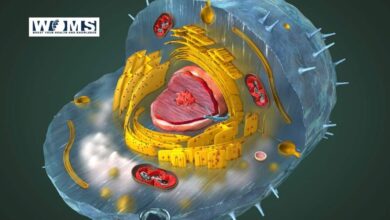How Mindfulness Reduces Stress at Work

Workplaces today are faster, busier, and more connected than ever. Emails, deadlines, and constant notifications make it hard for employees to pause and breathe. Stress at work has become a global issue, and many people feel its effects on their mental and physical health. One powerful way to cope with this pressure is through mindfulness.
Mindfulness is the practice of paying attention to the present moment without judgment. It helps people focus, calm their minds, and respond more thoughtfully to challenges. At work, even small doses of mindfulness can reduce stress, improve productivity, and create a healthier environment.
The Scope of Workplace Stress
Stress at work is common and widespread.
- According to the American Institute of Stress, 83% of U.S. workers experience work-related stress, and almost half say they need help managing it【AIS, 2022】.
- The World Health Organization (WHO) identifies stress as a major occupational health risk, contributing to burnout, absenteeism, and reduced productivity【WHO, 2021】.
- In financial terms, stress costs businesses billions each year through lost workdays and healthcare expenses.
Given these numbers, it is clear why organizations and employees are searching for solutions—and mindfulness is proving effective.
How Stress Affects the Body and Mind
When work stress builds up, the body triggers the fight-or-flight response. Stress hormones like cortisol and adrenaline rise, leading to:
- Rapid heartbeat
- Tense muscles
- Restlessness and irritability
- Difficulty focusing
Over time, chronic stress increases the risk of anxiety, depression, heart disease, and sleep problems. Without healthy coping strategies, employees may also experience burnout—a state of emotional and physical exhaustion.
What Mindfulness Does in the Workplace
Mindfulness interrupts the stress cycle by shifting attention back to the present moment. Instead of reacting automatically to stress, employees learn to pause, observe their thoughts, and respond calmly.
Benefits for the Individual
- Reduces anxiety: By focusing on the here and now, mindfulness helps prevent rumination about past mistakes or future worries.
- Improves concentration: Mindful attention strengthens focus, making tasks feel less overwhelming.
- Enhances emotional regulation: Employees handle challenges with greater patience and clarity.
Benefits for Organizations
- Better teamwork: Mindfulness promotes empathy and reduces conflict.
- Higher productivity: Calm and focused employees work more efficiently.
- Lower turnover: Stress management programs improve job satisfaction and employee retention.
Scientific Evidence for Mindfulness at Work
Research supports mindfulness as an effective tool for reducing workplace stress.
- A study published in the Journal of Occupational Health Psychology found that employees who practiced mindfulness reported lower stress levels and improved well-being【Hülsheger et al., 2013】.
- Harvard researchers discovered that just eight weeks of mindfulness training reduced activity in the brain’s amygdala—the area linked to stress and fear【Harvard Gazette, 2011】.
- The American Psychological Association (APA) notes that mindfulness programs improve resilience, helping workers recover more quickly from challenges【APA, 2021】.
These findings confirm that mindfulness is not just a trend—it’s a practical solution to workplace stress.
Simple Mindfulness Practices for the Workday
Mindfulness at work does not require long sessions or special equipment. Even five minutes can make a difference.
1. Mindful Breathing
Take a short break to focus on your breath. Inhale deeply through your nose, pause, then exhale slowly through your mouth. Repeat for two to three minutes to calm the nervous system.
2. One-Minute Check-In
Pause once or twice a day to notice how you feel—physically, mentally, and emotionally. This awareness helps you respond instead of react.
3. Mindful Walking
Use short breaks to walk slowly and notice each step. Pay attention to your posture, movements, and surroundings.
4. Gratitude Reflection
At the end of the day, list three things that went well. Gratitude helps shift focus from stress to positive experiences.
5. Mindful Emailing
Before sending an email, take one deep breath. This short pause prevents rushed or emotional responses.
The Role of Employers in Supporting Mindfulness
While individuals can practice mindfulness on their own, organizations also play a vital role in creating a supportive culture. Employers can:
- Offer mindfulness training programs or workshops.
- Provide quiet spaces for breaks or meditation.
- Encourage reasonable workloads and healthy boundaries.
- Model mindful leadership by practicing presence and empathy.
Companies like Google and General Mills have already introduced mindfulness programs, reporting higher employee satisfaction and better stress management.
Overcoming Barriers to Mindfulness at Work
Some employees may feel skeptical or too busy for mindfulness. Common barriers include:
- Lack of time: Even two minutes of mindful breathing can reduce stress.
- Stigma: Presenting mindfulness as a practical, evidence-based skill rather than a “spiritual” practice increases acceptance.
- Distraction: Encouraging small, frequent practices builds consistency without requiring major lifestyle changes.
By starting small and making mindfulness accessible, workplaces can normalize it as part of daily well-being.
When Mindfulness May Not Be Enough
Mindfulness helps with everyday stress, but it is not a replacement for professional mental health care. If stress leads to symptoms of anxiety, depression, or burnout that interfere with daily life, professional support may be needed. Employees should feel encouraged to use therapy, counseling, or Employee Assistance Programs (EAPs) alongside mindfulness practices.
Conclusion
In a fast-paced digital world, workplace stress is almost unavoidable—but burnout is not. Mindfulness offers a simple, effective way to break the stress cycle. By practicing presence through breathing, walking, or reflection, employees can calm their minds and improve focus. When workplaces support these practices, they not only reduce stress but also create healthier, more resilient teams.




